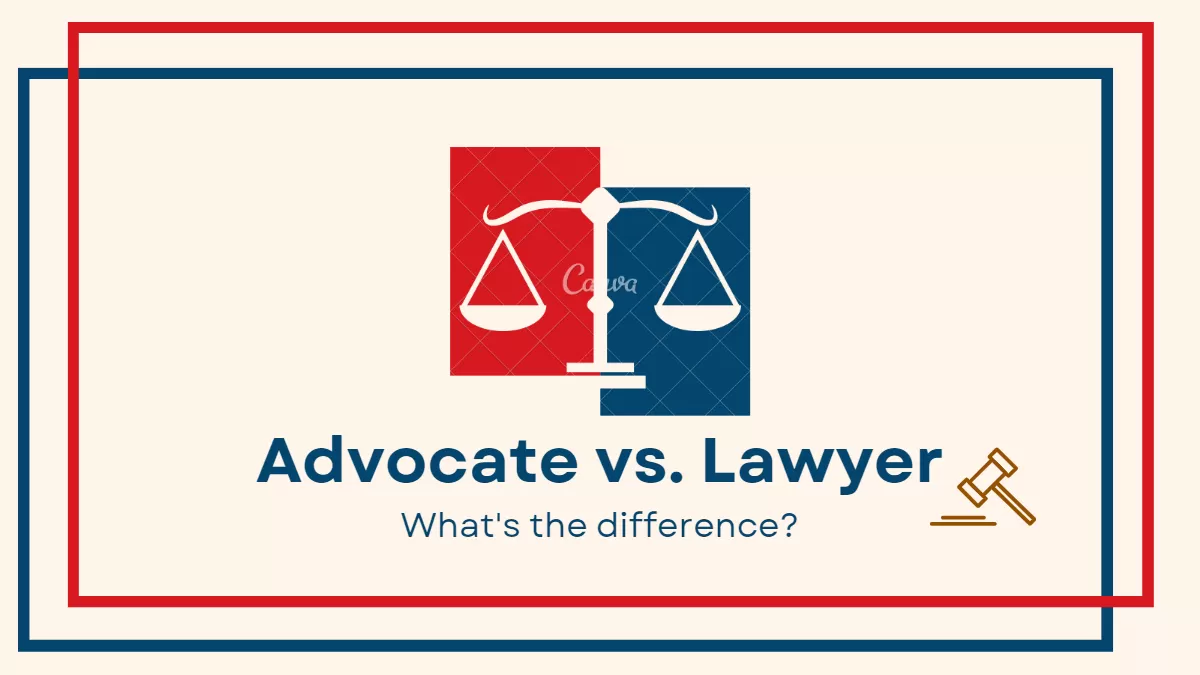Are advocates the same as lawyers? Or vice-versa? We have all questioned this before. After all, it can be pretty hard to tell the difference between an advocate and a lawyer, as both positions typically deal with legal matters. However, there are many differences between an advocate and a lawyer.
But first, let's take a look at what each role entails.
Advocates are people who are specially trained to help people who have legal problems. They provide legal services to their clients, and they also work pro bono (without payment). Advocates represent their clients in court and attempt to get the best possible outcome for them.
A lawyer is anyone working in the legal field, including solicitors, and barristers. They cannot represent clients in a court of law. To be specific, a lawyer is a generic term that is used to represent anyone working in the legal profession.
We now have a clearer understanding of what an advocate and a lawyer are, which raises the question: How exactly are advocates and lawyers different? Let’s find out!
Also Read | What Is The Difference Between A Teaspoon And A Tablespoon?
Differences between an advocate and a lawyer
- An advocate is a legal professional who represents clients in court. In many countries, including India, UK, and South Africa, an advocate is a highly qualified lawyer who has been admitted to the bar and is authorized to practice law in higher courts.
- A lawyer, on the other hand, is a general term used to describe someone who practices law. In the United States, a lawyer can be an attorney, a barrister, or a solicitor, depending on the state or country.
Also Read | What Is The Difference Between Heart Attack And Cardiac Arrest?
- In order to become an advocate, a lawyer must typically have several years of experience practicing law, as well as pass a rigorous bar exam.
- Lawyers typically have a law degree and are licensed to practice law in a specific jurisdiction. They may work in a variety of areas such as criminal, civil, corporate, and family law.
Also Read | What Is The Difference Between Arteries And Veins?
- One of the key differences between advocates and lawyers is their area of expertise. Advocates typically specialize in a specific area of law, such as criminal law, and are considered experts in that area. Lawyers, on the other hand, may have a more general practice and may not specialize in any particular area of law.
- Another difference is that advocates typically only represent clients in court, while lawyers may also provide legal advice and assistance outside of court.
Also Read | What Is The Difference Between Food Chain And Food Web?
- Lawyers may also handle paperwork and negotiations, while advocates mainly focused on representing clients in court.
Also Read | What Is The Difference Between Brain And Mind?
In conclusion, while both advocates and lawyers are legal professionals, they have different roles and responsibilities. Advocates are highly qualified lawyers who represent clients in court, while lawyers are general legal practitioners who may work in a variety of areas of law, but cannot represent their clients in a court of law.
The key difference between the two is that advocates typically specialize in a specific area of law and are considered experts in that area, while lawyers may have a more general practice.
